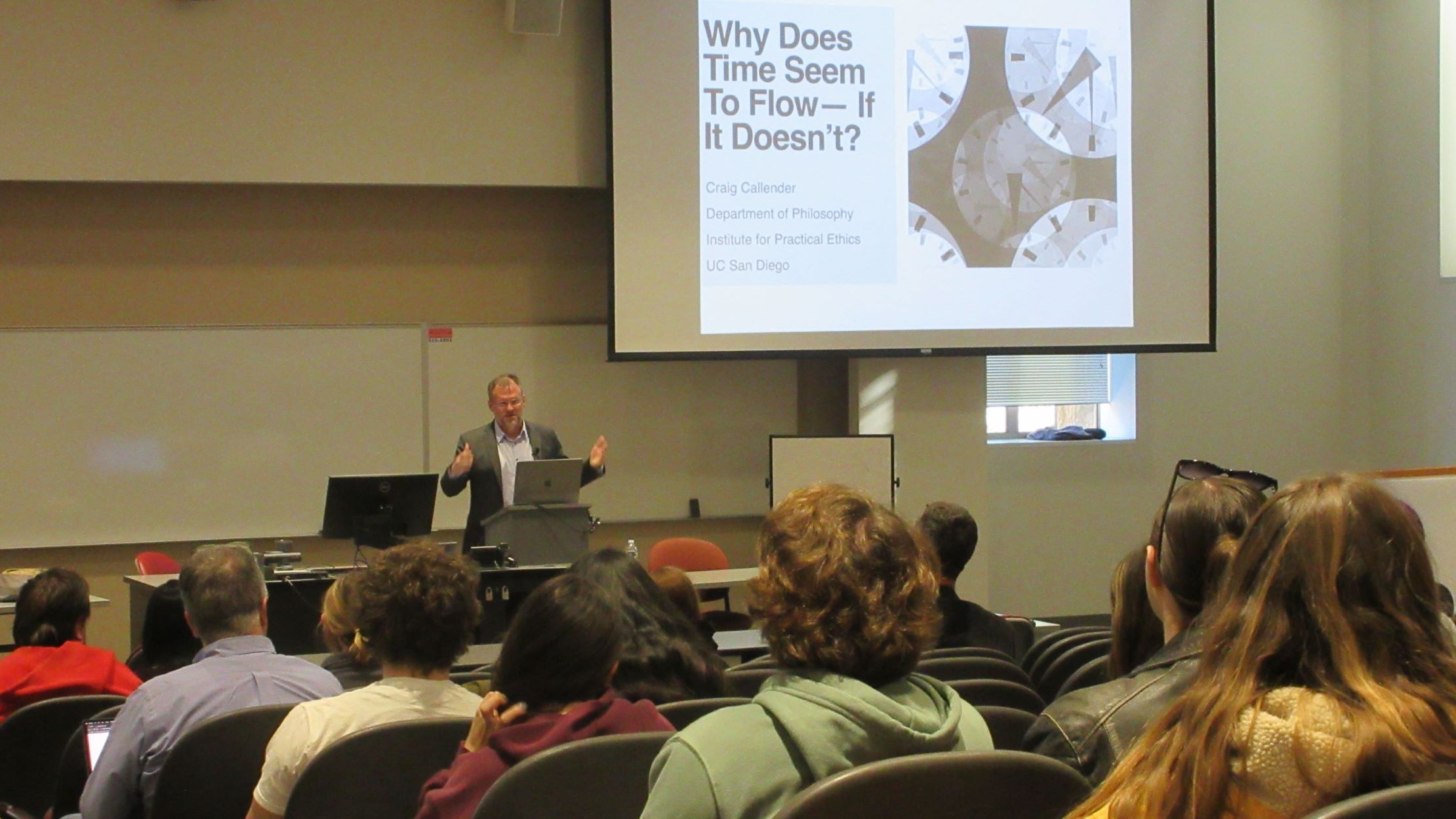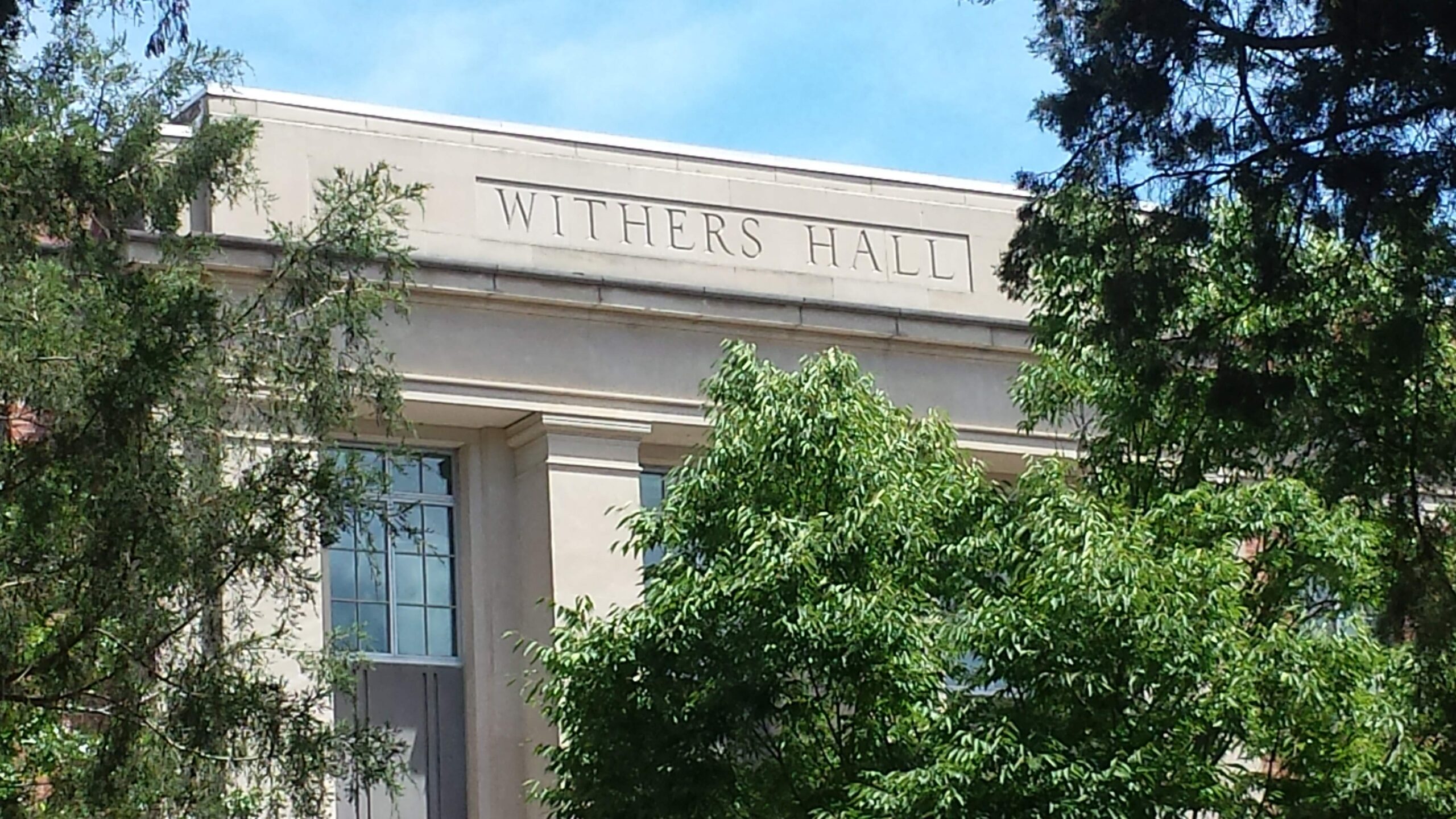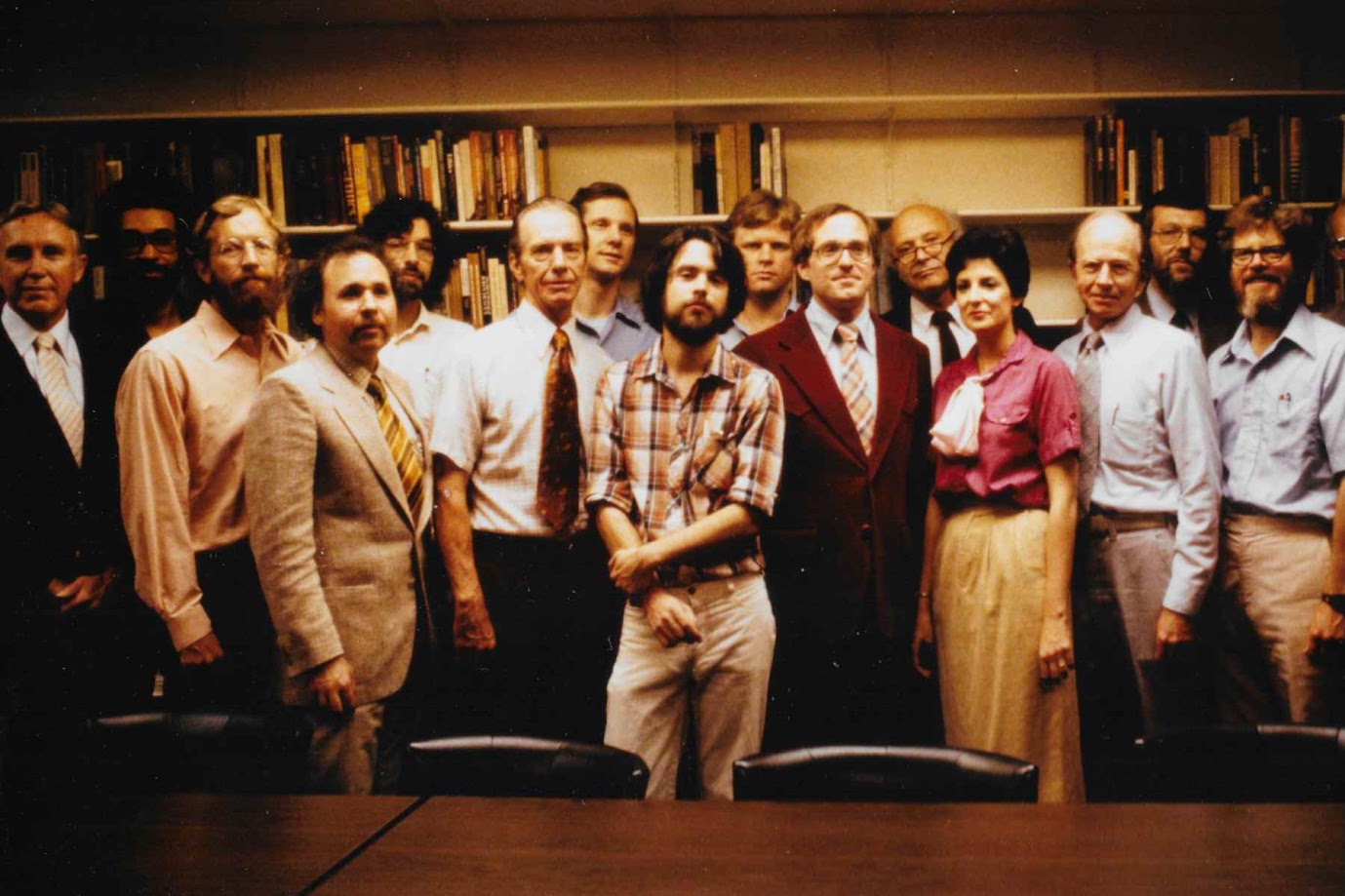Callender Gives World Philosophy Day Lecture on Manifest Time

A large audience attended NC State University’s sixth World Philosophy Day Lecture on the afternoon of Friday, November 18, 2022. The speaker was Craig Callender, Professor of Philosophy at the University of California San Diego, who spoke on the topic “Why Does Time Seem to Flow—If It Doesn’t?”
World Philosophy Day has been celebrated internationally on the third Thursday of November since 2002. It was officially proclaimed by UNICEF in 2005 to celebrate and advance philosophy as “a discipline that encourages critical and independent thought … capable of working towards a better understanding of the world and promoting tolerance and peace.”
Callender specializes in the philosophy of science, focusing on physics and the metaphysics of science. His interests range from the philosophy of time to applied social and ethical issues concerning science. He has published numerous scholarly articles and chapters, two edited books, a coauthored book and two sole-authored books. His most recent book, What Makes Time Special?, won the Lakatos Award in 2018 and the Patrick Suppes Prize this year. In his lecture, Callender drew significantly on this book.
He began by observing that, while human conceptions of time differ from culture to culture, there is reason to think that certain common ground underlies these differences. According to this common notion of time, which Callender referred to as “manifest time,” the present (that is, the “now” that divides the past from the future) is special; the past is fixed while the future is open; and time itself flows.
Yet physics—whether it be Newtonian mechanics, general relativity or quantum physics—has no use for manifest time. While it recognizes that events can occur earlier or later in time, physics does not recognize a present, or a “now.” This means that it cannot accommodate either a past (“earlier than now”) or a future (“later than now”). Nor does physics treat later times as more open and less fixed than earlier times. And it cannot make sense of the claim that time flows, because this would presuppose a second form of time relative to which the rate at which time flows could be expressed.
How, then, can we explain our sense of manifest time? Callender argued that it can be explained in a way that is consistent with physics by drawing on physics, biology and psychology. Key steps in his argument included the following.
The present is not merely an instant in time but an indeterminate period that, for any individual, includes several events that are felt to occur at the same time even though they might occur at physically different times. Psychology has shown that what is felt to be included in a present—a “now”—at some stage of physical time varies to some extent between different persons. This challenges our sense of a shared, objective present, but this challenge can be answered by pointing to major overlaps between what is included in the contents of the felt present of different persons.
The human sense that the future is open and the past fixed can be explained, Callender argued, on the basis of the fact that human beings have the sense that, while they can do things that make a difference to what happens at later times, they cannot do anything that makes a difference to what happens at earlier times.
Our sense that time flows presents a greater challenge, but Callender suggested that it is grounded in the sense (or is it an illusion?) of an enduring self that is wholly present at all times during which it exists. For this gives rise to a feeling that one’s self and one’s present are moving forward through time or relative to time. So the human conception of an ongoing self plays a crucial part in the explanation of why time seems to flow.


